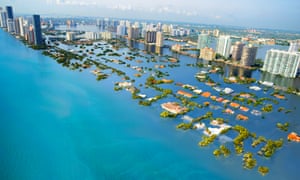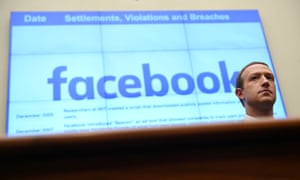Nieuw rapport: (On)gehoorde geluidsschade van Schiphol
Minstens 1,5 miljoen Nederlanders blootgesteld aan serieuze gezondheidsrisico’s en verstoorde rust. Doorgroeien is onverantwoord.
Als OZV doen we geregeld onderzoek naar vliegbewegingen in onze regio en naar de geluidsoverlast die daarvan het gevolg is. Vandaag verscheen ons nieuwe rapport (On)gehoorde geluidsschade van Schiphol (pdf). De uitkomsten zijn schokkend.
Waarom dit onderzoek?
Anderhalf jaar geleden kocht Wouter een nieuw huis in Oegstgeest. Hij wist toen nog niet wat hem boven het hoofd hing. “Je denkt: ’Ik koop een mooi nieuw huis in een mooie rustige buurt.’ Totdat je ontdekt dat je onder een aanvliegroute van Schiphol zit. Ik had daar nooit aan gedacht, want Schiphol is best ver weg.” Ferdinand overkwam hetzelfde, maar dan in Leiden. “Je vraagt je af, of die overlast echt nodig is en wat het voor je gezondheid kan betekenen”, zegt hij.
Naast Wouter en Ferdinand zijn er in Oegstgeest, Leiden en omstreken veel meer bewoners die dagelijks last hebben van Schiphol en zich daarover zorgen maken. In 2008 verenigden ze zich onder de naam Oegstgeest Zonder Vlieghinder (OZV). De groep telt nu zo’n zeshonderd bewoners. Vanuit de stichting kaarten zij hun zaak aan bij politici en bestuurders en doen ze al jaren zelf onderzoek naar vliegbewegingen en vlieglawaai in de regio. “We doen dat”, zegt Ferdinand, “omdat zaken waar wij veel last van hebben niet goed naar voren komen in de reguliere rapportages van Schiphol en overheidsinstanties. Die laten bijvoorbeeld niet zien hoe laag er al gevlogen wordt op grote afstand van Schiphol, wat tot veel overlast leidt. Verder hebben we twijfels over officiële cijfers, zoals die bijvoorbeeld staan vermeld in de laatste concept-MER, waarmee Schiphol de mogelijkheden voor groei wil aantonen.”
Ons onderzoek, dat net is afgerond, maakt gebruik van nieuwe data en baseert zich op de nieuwe richtlijnen van de Wereldgezondheidsorganisatie (WHO) voor vliegtuiglawaai. De data zijn afkomstig van publiek beschikbare bronnen. Deze bronnen zijn met elkaar gekoppeld om tot nieuwe inzichten te komen. En de uitkomsten zijn schokkend. Schiphol wil groeien, maar in het licht van de nieuwe, strengere WHO-richtlijnen en de serieuze gezondheidsrisico’s voor enorme aantallen omwonenden, lijkt krimp de enige verantwoorde keuze.
De belangrijkste conclusies
Gezondheid van meer dan 1,5 miljoen Nederlanders bedreigd door Schiphol.
De WHO stelt in haar laatste rapport over de gevolgen van omgevingslawaai een duidelijke grens aan de hoeveelheid vliegtuiglawaai waaraan mensen blootgesteld mogen worden. Daarboven lopen ze onverantwoorde gezondheidsrisico’s en worden overheden aangespoord om direct maatregelen te nemen om de geluidsoverlast te verminderen. In haar concept-MER, opgesteld om groei te rechtvaardigen, stelt Schiphol dat er in 2018 1,3 miljoen mensen woonden in het gebied waar het vliegtuiglawaai boven de WHO-grens uit komt. Ons onderzoek toont echter aan dat de aantallen significant hoger zijn. Het gaat minstens om 1,5 miljoen bewoners en waarschijnlijk om nog veel meer. Al deze bewoners betalen volgens het WHO-rapport met een verhoogd gezondheidsrisico mee aan de exploitatie van Schiphol. In tegenstelling tot wat veel mensen denken, gebeurt dit vaak onbewust. Bewoners binnen dit gebied hebben serieuze verhoogde risico’s op hart- en vaatziekten, verhoogde bloeddruk en stress. Verder kunnen kinderen een lees- en taalachterstand oplopen. Let op, deze risico’s gelden dus voor alle bewoners, en niet alleen degene die hinder ondervinden. Directe actie is dus geboden.
Berekende geluidscontouren kloppen niet met de metingen.
De berekende geluidscontouren over 2018, die Schiphol publiceert via het Bewoners Aanspreekpunt, komen in het noordelijk deel van Zuid-Holland alleen al op 20 van 21 onderzochte meetpunten niet overeen met de gemeten waarden. In al deze gevallen zijn de gemeten waarden hoger dan de berekende waarden. De berekeningen gaan uit van vliegprofielen die in de praktijk vaak niet worden nageleefd, ook al gaat dit direct ten koste van rust en gezondheid van omwonenden.
Bij landingen wordt nog steeds onnodig langdurig laag gevlogen met veel overlast tot gevolg.
Ook in 2018 werd nog steeds overwegend laag aangevlogen voor landingen op Schiphol, waarvan een groot deel zelfs bijzonder laag vliegt, namelijk rond de minimaal toegestane hoogte van 600 meter. Dit gebeurt ook boven gebieden die op grote afstand (>20 km) van Schiphol liggen. Deze rustverstoring van omwonenden is onnodig en is al meerdere malen aangekaart door OZV, maar gaat toch gewoon door. En dat terwijl uit ons onderzoek van meetgegevens blijkt dat hoger aanvliegen het pieklawaai van overkomende landingen aanzienlijk verlaagt.
Van nieuwere vliegtuigen valt weinig heil te verwachten.
Nieuwere vliegtuigen lijken minder geluidsoverlast te veroorzaken dan oude vliegtuigen, maar uit ons onderzoek blijkt dat de terugdringing van de geluidsoverlast zeer gering is. Schiphol zelf en het ministerie van Infrastructuur en Water zien in de komst van nieuwere vliegtuigen juist een belangrijke oplossing voor geluidsoverlast door Schiphol. Dit lijkt een heilloze weg.
Samenvattend
Alles bij elkaar kan gesteld worden dat het aantal mensen dat aan onverantwoorde gezondheidsrisico’s wordt blootgesteld door vlieglawaai veel groter is dan gedacht. Directe actie is geboden en hopen op stillere vliegtuigen blijkt een illusie. Alleen hoger aanvliegen en minder vluchten kunnen het gezondheidsrisico voor meer dan 1,5 miljoen Nederlanders op korte termijn terugdringen.
In lijn met de uitspraak in het WHO-rapport dat “the desirable effects of adherence to the recommendation outweigh the undesirable consequences” is het evident dat elke vorm van groei op dit moment compleet onverantwoord is. Ons rapport komt tot deze verstrekkende conclusie puur op basis van een analyse van de gezondheidsrisico’s door blootstelling aan geluid. Maar er zijn nog verschillende andere aspecten aan de luchtvaart, zoals ultrafijnstof, die potentieel ook zeer schadelijk kunnen zijn voor de volksgezondheid en die deze conclusie nog zwaarwegender maken.
----------------------------------------------------
/s3/static.nrc.nl/rechtenbestuur/files/2019/09/bouwnij1400328jpg11579122.jpg)



